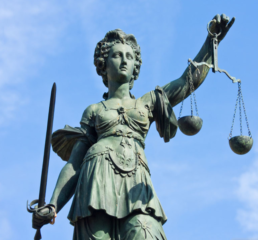 A note for those who have a brain and think.
A note for those who have a brain and think.
In this country we have law, essentially in several tiers. There are our local laws, such as how large a sign we are permitted to place in our home’s front yard, and State laws to provide uniform coverage for healthcare or education or even law enforcement. But the highest Law in our land is our Constitution.
Our constitution was not haphazardly slapped together but instead was the product of significant years of experience and debate. The first such document was not the one we follow today, rather it was The Articles of Confederation, and was intended to “bind the States in a League of Friendship”. But friendship did not make for efficient government. George Washington convinced the Congress to hold a Grand Conference, or Constitutional Convention, to revise the Articles of Confederation.
The Constitutional Convention was assembled at the Pennsylvania Statehouse in Philadelphia in May 1787. George Washington was elected President of the convention and they then shuttered the windows, swore secrecy, and proceeded to swat flies, sweat, and argue for four months. What resulted was referred to as The Great Compromise: the beginning of our US Constitution.
Even with all that effort, debate, and compromise, the Constitution would not be ratified by the 13 States until further safeguards and protections were promised. By Joint resolution of Congress, on September 25, 1789, twelve (12 – not 10) amendments were proposed. The Constitution and proposed amendments were submitted to the States for Ratification, and ten of those twelve proposed amendments became the first ten amendments to the US Constitution.
These amendments were required because of concerns the Federal government would over reach, intruding into the private lives and rights of individual citizens, or the rights of the States. To prevent this and legally restrain the Federal government, these amendments were added, and then the 13 States ratified the new government, as set forth in the US Constitution.
There are many books written on each of these amendments: the second amendment is high in the public conscious these days with the push from certain quarters to disarm law abiding citizens under a pretense of “security” – a common reason used by nobles and monarchs in Europe which always resulted in worsening the lives of their subjects. The fifth was commonly sited in the ’40’s and 50’s – “I’ll take the 5th” meant a person refused to answer that question because it could incriminate her.
The fourteenth amendment (14th) was passed by Congress June 13, 1866 and ratified July 9, 1868. It states in Section 1:
“All persons born or naturalized in the United States, and subject to the jurisdiction thereof, are citizens of the United States and of the State wherein they reside. No State shall make or enforce any law which shall abridge the privileges or immunities of citizens of the United States; nor shall any State deprive any person of life, liberty, or property, without due process of law; nor deny to any person within its jurisdiction the equal protection of the laws.”
This amendment has many implications for us now. For one thing, it reveals the legal concept motivating the “anchor baby” – when a pregnant illegal alien gives birth on American soil, the baby is legally an American Citizen: the mother is not, but the child is. This can be used to create humanitarian problems as well as legal problems. Nothing in the Constitution says the illegal alien can stay here illegally, but it does say the child cannot be punished without due process. Often the solution has been to simply acknowledge defeat and allow the illegal alien to remain in the US illegally with her child. She could be deported immediately and given the option of taking her citizen child with her or giving it up for adoption.
Another relevant application of this, our highest national Law, is the treatment of persons accused of crimes: “nor shall any State deprive any person of life, liberty, or property, without due process of law; nor deny to any person within its jurisdiction the equal protection of the laws.” This means everyone is to receive DUE PROCESS.
One example where this could apply would be if a police officer, during a routine traffic stop, believed that the operator of the car was carrying a “large amount of cash”. For example, if she or he were on their way to purchase a large appliance or recreational vehicle with money they had saved in advance for that purpose. But the law enforcement officer might believe “no one buys with cash anymore, the car loan is a way of life, you’re always going to have a car loan”. So, if he decides the driver of the car might possibly be intending to use the cash for an unlawful purpose, such as buying a cache of controlled substances, he can simply take the cash – no due process, no proof of an actual crime, just “he feels this is an unusual amount of cash for someone to be carrying around”. Is he stopping a drug dealer from making a purchase? Likely so. But what if the citizen really has paid off all his debts, accumulated an emergency fund, and buys with cash, never borrows?
This type of abuse was common in medieval Europe and a strong reason why the first ten amendments were demanded before the States would ratify. By ignoring our highest laws we cause ourselves problems. Suppose a government official in the future decides you have “too much” of something — food, clothing, some other scarce and needed goods? Is this setting a precedent today that results in unilateral confiscation of anything, anytime, from anyone in the future? The Founding Fathers were concerned this could happen, as it was the norm in Europe! So they wrote “nor shall any State deprive any person of life, liberty, or property, without due process”. More difficult, more inconvenient for government. Exactly as the writers of the Constitution intended. Harry Truman wrote “The Constitution was not written to make the government as efficient as possible, rather to make it as safe as possible for the citizens”. Where The Buck Stops by Harry S. Truman. Read it.
A very significant part of the 14th amendment is that we are not tried and condemned legally by public opinions, in the public media, such as FaceBook. Nor are we automatically guilty and condemned because someone merely accuses us. Additionally if there is evidence that our accuser has been consulting with others on what to say and how to say it, instead of going to proper authorities to file her charges, her testimony could be summarily dismissed as potentially fraudulent.
The reason we have a Constitution like this, and require all citizens receive due process, is because if we bend the rules to condemn someone we do not like now, then it sets a precedent that later, if we are accused of something, we ourselves could be denied due process.
Our Constitution came into being as a way to unite our States for commerce and protection, “in Order to form a more perfect Union, establish Justice, insure domestic Tranquility, provide for the common defence, promote the general Welfare, and secure the Blessings of Liberty to ourselves and our Posterity”. This is not a need to be taken lightly.
From Wikipedia:
Supreme Court Justice Hugo Lafayette Black vigorously defended the “plain meaning” of the Constitution, rooted in the ideas of its era, and emphasized the supremacy of the legislature; for Black, the role of the Supreme Court was limited and constitutionally prescribed. His absolutism led him to enforce the rights of the Constitution, rather than attempting to define a meaning, scope, or extent to each right. Black expressed his view on the Bill of Rights in his opinion in the 1947 case, Adamson v. California, which he saw as his “most significant opinion written:”
I cannot consider the Bill of Rights to be an outworn 18th century ‘strait jacket’ … Its provisions may be thought outdated abstractions by some. And it is true that they were designed to meet ancient evils. But they are the same kind of human evils that have emerged from century to century wherever excessive power is sought by the few at the expense of the many. In my judgment the people of no nation can lose their liberty so long as a Bill of Rights like ours survives and its basic purposes are conscientiously interpreted, enforced, and respected… I would follow what I believe was the original intention of the Fourteenth Amendment—to extend to all the people the complete protection of the Bill of Rights. To hold that this Court can determine what, if any, provisions of the Bill of Rights will be enforced, and if so to what degree, is to frustrate the great design of a written Constitution.[53]
“The Law, once bent, does not easily spring back into shape.”
Constitutional protections apply to all of us, even if we are guilty, even if we are accused by someone. We need to see that Indiana Attorney General Curtis Hill receives the same due process as everyone else, guaranteed by our Constitution, not because he is or is not guilty of anything, but because in so doing we protect our own future right to due process.
 Much information is available on our laws and their history at the national archives. Many good sources are available for a very nominal price, prepared by skilled and studied historians who curate these archives. The National Archives Store can be found at https://www.nationalarchivesstore.org/. They have a very nice, picture rich, history of our founding documents (signed by the author!) for under $27, including shipping. EVERY American should know where we come from and how, to appreciate and be motivated to defend our way of life. I highly recommend you buy and read this book: The Charters of Freedom by David Ferriero, Archivist of the United States.
Much information is available on our laws and their history at the national archives. Many good sources are available for a very nominal price, prepared by skilled and studied historians who curate these archives. The National Archives Store can be found at https://www.nationalarchivesstore.org/. They have a very nice, picture rich, history of our founding documents (signed by the author!) for under $27, including shipping. EVERY American should know where we come from and how, to appreciate and be motivated to defend our way of life. I highly recommend you buy and read this book: The Charters of Freedom by David Ferriero, Archivist of the United States.